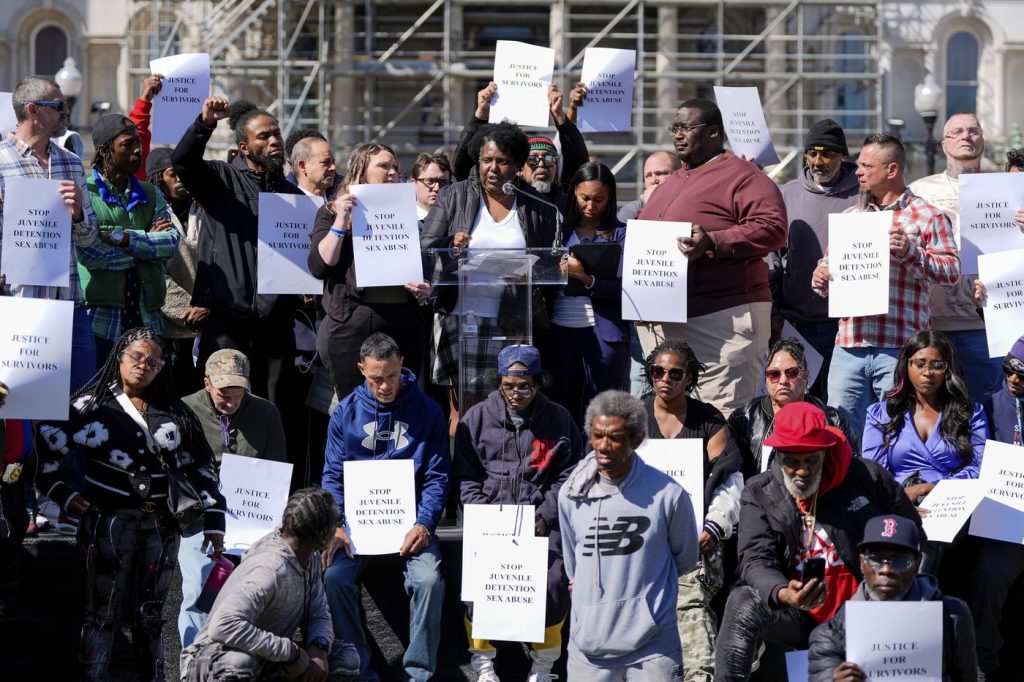BALTIMORE (AP) – A recent federal lawsuit has intensified the ongoing legal struggle in Maryland concerning child sexual abuse allegations within state-run juvenile detention facilities. This lawsuit comes amidst thousands of claims already filed in state court, raising significant questions about the state's potential financial liability.
The new federal complaint, lodged on Wednesday, is on behalf of three plaintiffs seeking $300 million in damages—an amount that significantly surpasses the caps set for claims in state court. The lawsuit asserts that Maryland’s juvenile justice leaders were aware of a pervasive culture of abuse within youth detention facilities yet failed to take appropriate action, effectively violating the plaintiffs' civil rights.
A request for comments was made to Maryland's Department of Juvenile Services, which typically refrains from discussing ongoing litigation. Additionally, the Maryland Office of the Attorney General declined to offer any statements regarding the lawsuit.
According to attorneys involved in the case, approximately 11,000 plaintiffs have already filed lawsuits in state court. Maryland Senate President Bill Ferguson stated that discussions are ongoing between the plaintiffs' attorneys and the attorney general's office regarding a potential settlement. State officials have estimated that the financial risk involved could be between $3 billion and $4 billion.
The surge in lawsuits was triggered by a law enacted in 2023 that eliminated the statute of limitations for child sexual abuse claims in Maryland. This legislative change followed a damaging investigative report that outlined extensive abuse within the Archdiocese of Baltimore, prompting the archdiocese to file for bankruptcy to safeguard its assets.
However, Maryland lawmakers did not anticipate facing similar financial repercussions stemming from claims against the juvenile justice system. In response to the potential financial burden, leaders recently passed an amendment aimed at limiting future liabilities. This new law reduces the caps on settlements in state cases from $890,000 to $400,000 for claims filed against state institutions post-May 31, and from $1.5 million to $700,000 for private institutions. Furthermore, it stipulates that each claimant can only receive one payment, as opposed to multiple payments for separate instances of abuse.
Suing in federal court allows the plaintiffs to bypass these newly imposed limits. Attorney Corey Stern remarked, “Despite Maryland’s recent unconstitutional legislative efforts to insulate itself from liability for the horrific sexual brutalization of children in its custody, Maryland cannot run from liability under Federal law.” He emphasized that the United States Constitution was established to protect citizens from governmental overreach.
The three plaintiffs in the federal lawsuit claim they were sexually abused by staff members at two juvenile detention centers. Unlike other lawsuits that primarily detail incidents reported from decades ago, this federal case focuses on allegations of abuse occurring in 2019 and 2020, when the plaintiffs were aged 14 and 15. The victims expressed apprehension about speaking out due to concerns that their sentences might be lengthened as a consequence.
The complaint highlights the alleged negligence of state officials who are accused of ignoring a "culture of sexual brutalization and abuse." Stern anticipates that more federal claims could emerge as a result of this ongoing situation.
Overall, as Maryland grapples with significant legal challenges and mounting financial risks related to child sexual abuse claims in its juvenile justice system, the outcome of this federal lawsuit may set a precedent for how such cases are handled in the future.











